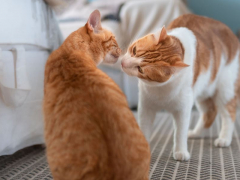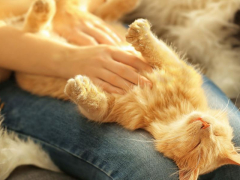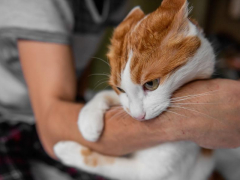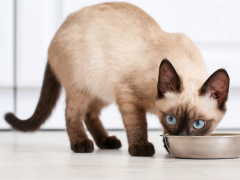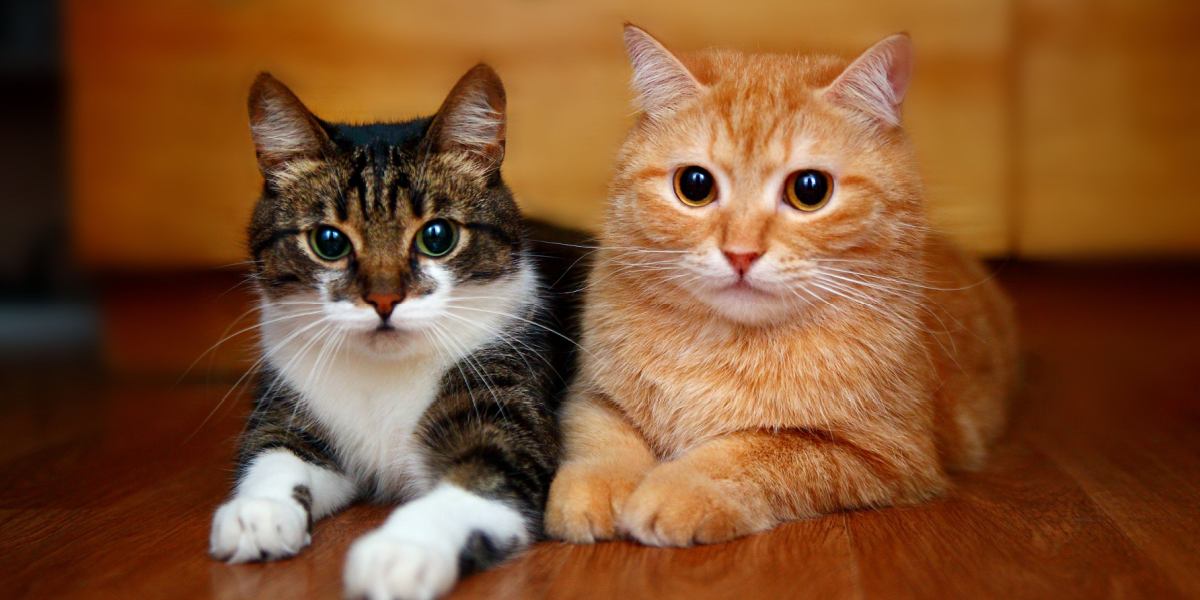
If you live in a multi-cat household, or you’re thinking of introducing another cat to your brood, you might find yourself wondering whether cats get jealous of other cats.
Cats can become very easily stressed and anxious when they aren’t getting along, leading to medical problems and poor health. So, if cats can experience feelings of jealousy, it could affect their behavior and even cause them certain health issues. Let’s find out whether cats get jealous.
Do Cats Feel Jealous?
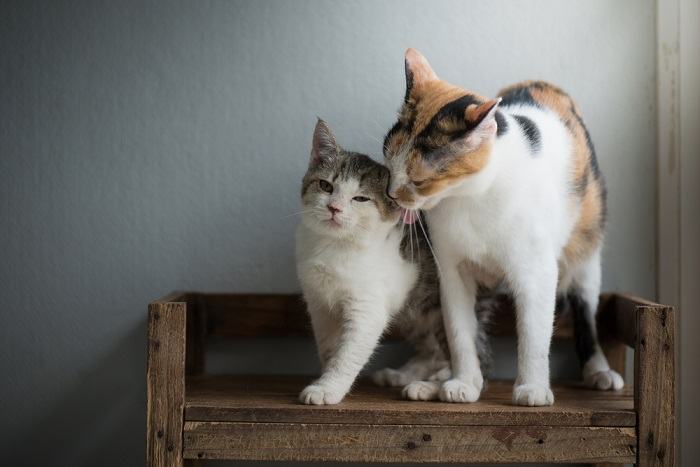
Cats might become jealous if one cat is getting something and the other cat isn’t.
Cats definitely feel jealous sometimes. It’s natural cat behavior to protect the things that are important to them, including those that are essential for their happiness or well-being. This includes food, water, treats, toys, shelter, and even human affection. Since cats value these things, it’s not surprising that they seem jealous when another cat is getting what they aren’t.
This might explain why one of your cats seems to position themselves between you and the other cat when you’re enjoying a cozy cuddle, or why they might want to use their cat bed so desperately that they practically lie on top of their cat companion.
Depending on the type of cat and what triggers them to feel jealous, you might notice them trying to exert their dominance or even being aggressive due to how they’re feeling.
Also Read: When Will My Cat Stop Hissing at New Kitten?
What Situations Could Make Your Cat Jealous?
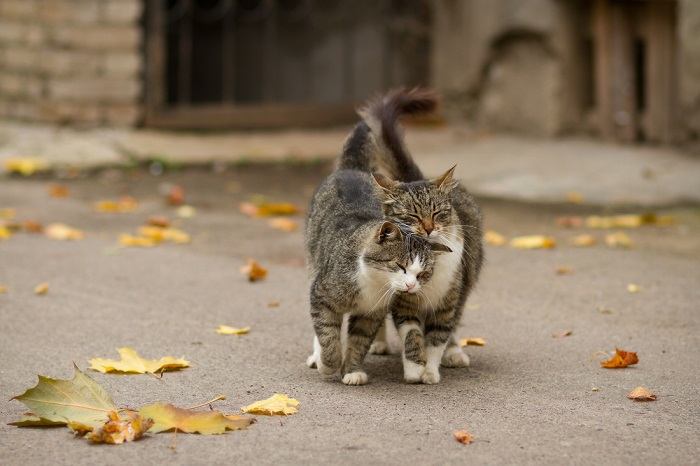
Any cat can feel jealous about something if they feel like they are not getting a fair deal.
Now that you know that your cat is capable of feeling jealous, we can look in more detail at the situations that might cause them to feel that pang of jealousy.
Lack Of Attention
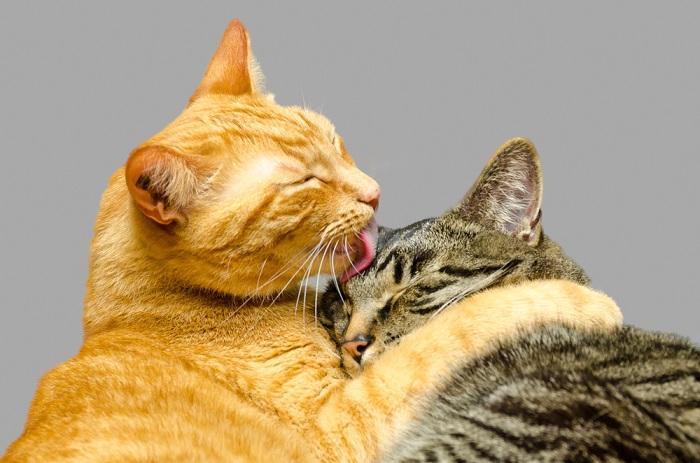
Jealousy can happen occasionally even when it seems as if your cats usually get along well.
Most cats enjoy social interaction of some kind, whether it’s with other cats or a favorite family member. If your cat feels like their buddy is the center of attention, they might do their best to shift the focus onto them. This could mean physically trying to stop you from petting the other cat by getting in the way or rubbing against you and purring.
However, you might find your cat shows their jealousy in other ways and tries to steal your attention by being a bit of a nuisance, climbing on the furniture, or knocking your trinkets off your shelf. Whatever method they use, you’re sure to be paying attention to them in the end!
Also Read: Why Do Cats Knock Things Off Tables? 7 Reasons Why!
1. A Lack Of Treats
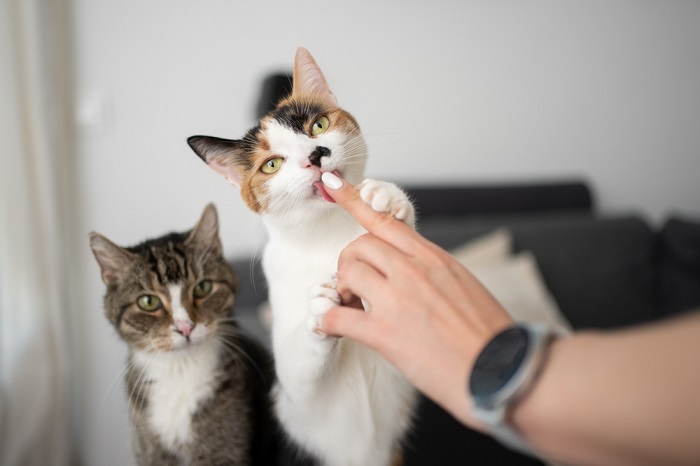
When doling out treats, do your best to keep things fair.
If you reach for your cats’ favorite brand of treats, you’ll probably find all cats come running. After all, it sometimes seems like they hear the rustle of a packet of treats from a mile away!
But if you have more than one keen treat recipient, you’d better make sure you keep things fair. Chances are that even if you keep a tally chart of how many treats each cat has had, they’ll still try to convince you that the other cat has had more than them!
2. Having Less Than The Lion’s Share Of Food
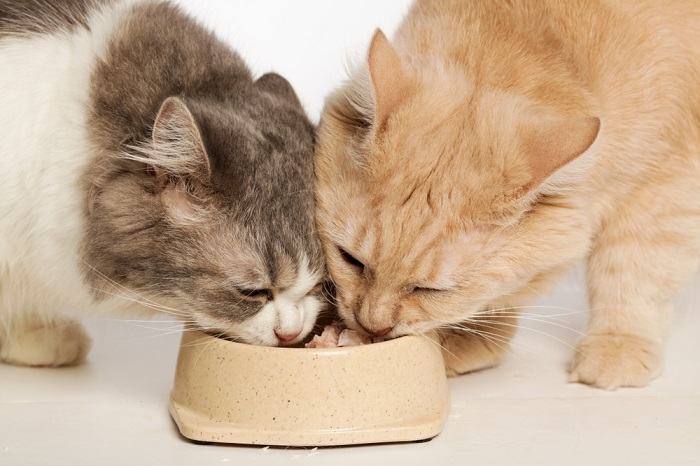
It’s best to feed multiple cats separately to make sure one is not eating more than their share of the food.
The same principle goes for food. Cats can get jealous of other cats’ meals, which isn’t a problem if they both eat the same cat food and have the same dietary needs.
However, if one takes longer to eat than the other, you might find the one who’s finished becomes jealous of the one who’s still eating. Cat logic, of course, but even though they’ve had the same amount, you might find you have a sneak thief on your hands.
Also Read: How Many Litter Boxes Should You Have Per Cat?
3. Being Relegated From Their Usual Resting Spot
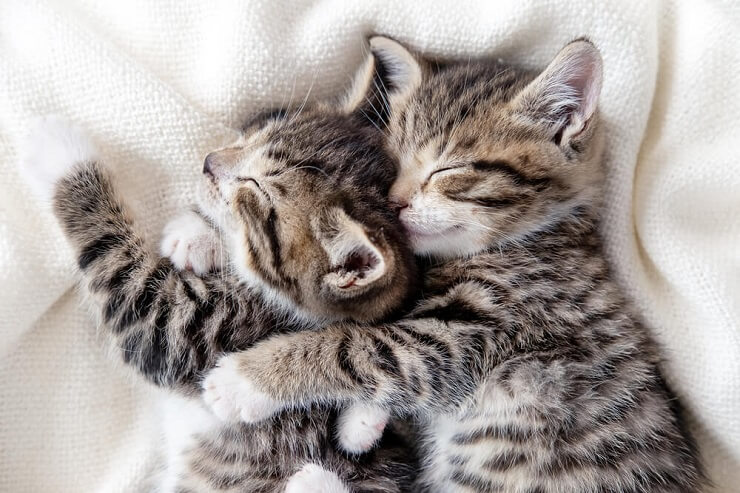
Some cats love sharing a favorite sleeping spot with their buddy, but others prefer to be the one and only.
Cats love to find safe, cozy, spots to curl up for a snooze. They can even become quite possessive over their chosen napping place. If they head to their usual spot on the bed, blanket, or couch, and find that it’s already occupied, they’re bound to get jealous. It would be ask if you went up to your bed and found someone else was sleeping in it. They might show their jealousy by approaching their feline friend and hissing or growling.
4. A New Furry Family Member
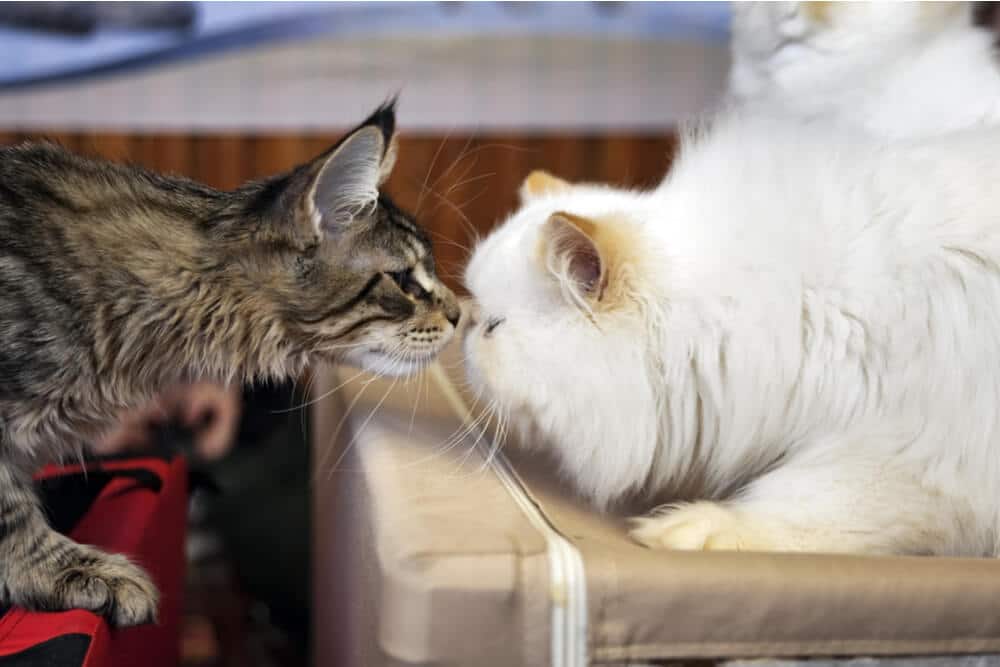
A little jealousy is bound to happen when you add a new cat to the household.
Perhaps the ultimate jealousy-inducing behavior is when a new addition joins the family. A new kitten or rescue cat means the whole household feels the excitement. But remember, your existing feline family members are bound to feel a bit jealous and left out.
This isn’t just pure jealousy though. Cats are creatures of habit, and they get used to their routine. When something changes in their environment, especially if it means more competition for food, toys, and human attention, they may become stressed and anxious.
Of course, it’s not just a new pet—new human family members can also cause jealousy. If you’ve recently had a new baby, expect your cat to take some time to adjust.
Also Read: 10 Questions To Ask Before Adopting A New Cat
5. Being Left Out At Playtime
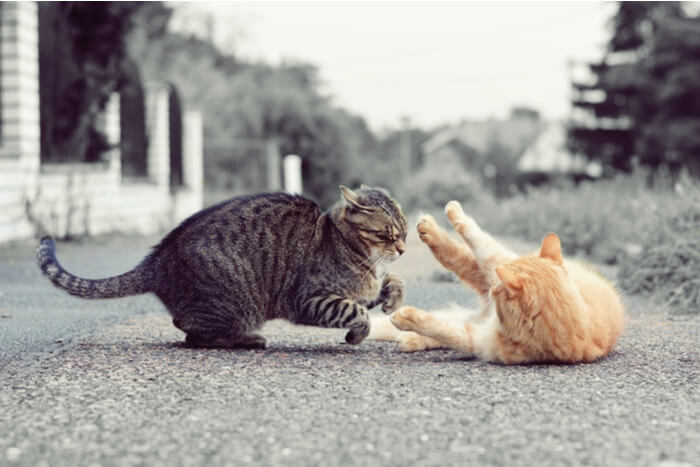
Cats may express jealously with hissing, growling, or even physical fighting.
Many cats live for one-on-one time with their pet owners. One-on-one time doesn’t have to be a cuddle, though—playtime can still feel like a treasured moment for your cat. Therefore, if one of your cats is getting more of your attention through play, you might find that the others get a bit jealous.
How Can You Help Your Jealous Cat?
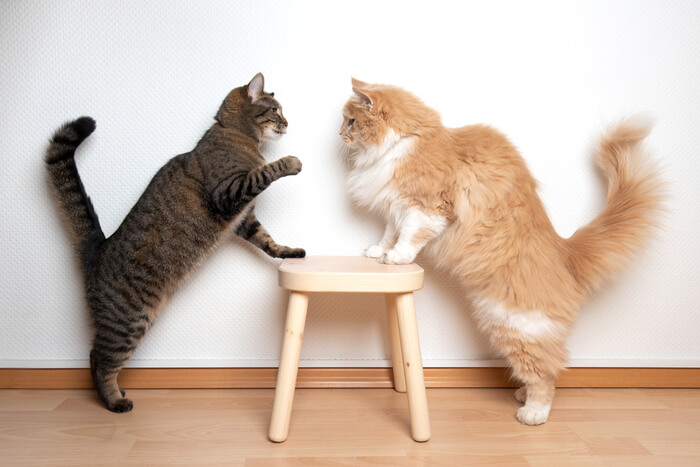
If you’re dealing with jealously amongst your feline family members, it’s possible to help smooth things over.
Although it’s not nice to think of your cat feeling jealous, the more concerning part is that jealous behavior may be the beginning of stress or anxiety, leading to more serious health issues. Here’s how you can make your jealous cat feel more contented:
Give Them More One On One Time
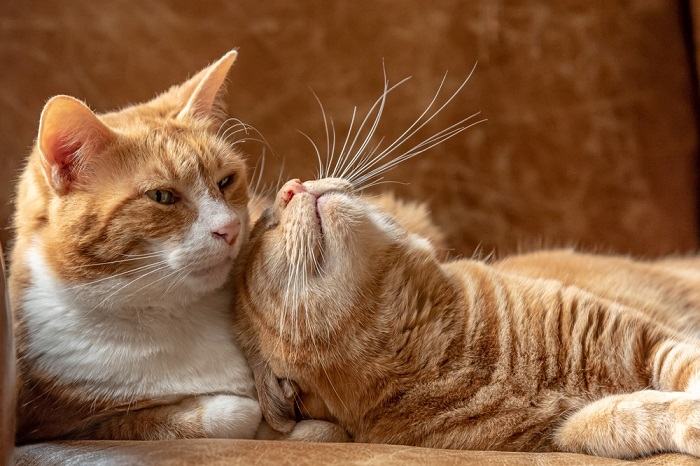
If cats feel they are getting enough attention from you, they will be less included to feel jealous.
If you have a jealous cat, try to spend more quality one-on-one time with them. This could be playing, practicing tricks, or just chilling on the couch together. Your cat will appreciate the time spent with you and it should help them feel more relaxed.
Try To Be Fair
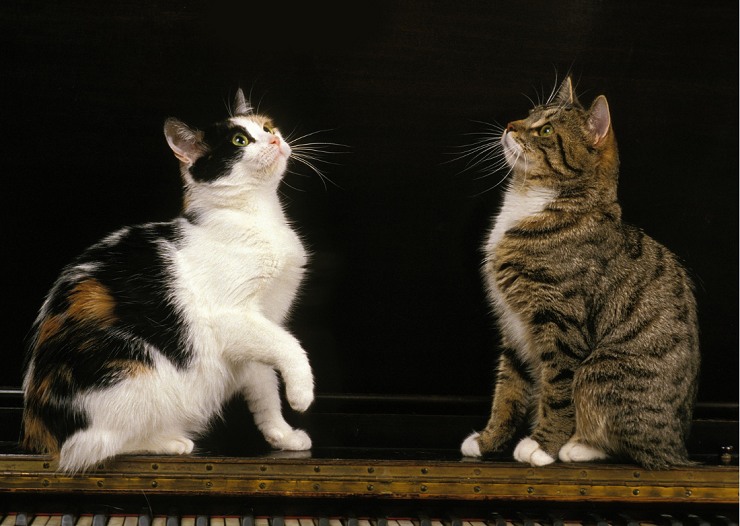
When handing out treats, giving attention, or engaging in playtime, try to keep things fair.
Having multiple cats can feel similar to having kids! There are lots of demands on your time and you need to find the right path that keeps everyone happy. The most important thing is to try to be fair. Devote similar amounts of time to each cat so that everyone gets a slice of your attention.
Provide Lots Of Enrichment
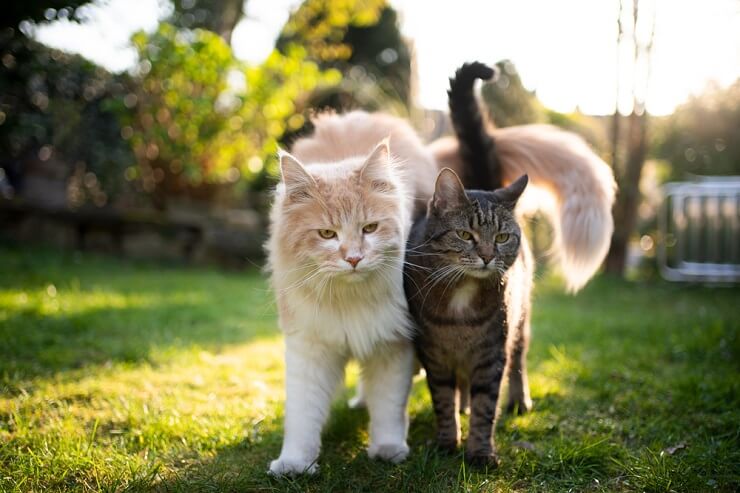
Cats are less likely to get caught up in squabbles when they all have lots to do.
The more distractions and mental stimulation your cat has, the less they’ll pay attention to their cat companions. Make sure you provide plenty of toys, cat trees, activity centers, or puzzle feeders to keep them occupied.
Also Read: The 10 Best Cat Slow Feeders & Puzzle Feeders
Prevent Competition
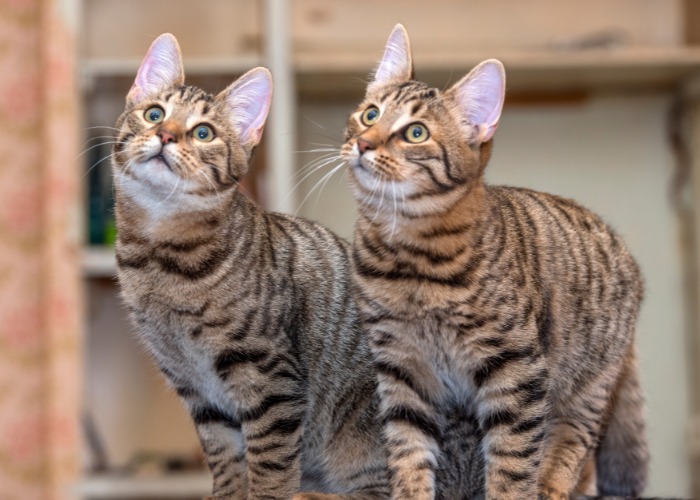
Make sure each cat has their own bowls, litter boxes, scratchers, and beds so they don’t need to compete.
When you have multiple cats, competition for food, territory, and even the litter box, can quickly become a source of stress. Therefore, it’s important to make sure that you provide enough food bowls, water sources, and litter boxes so they don’t have to share.
Introduce New Cats Gradually
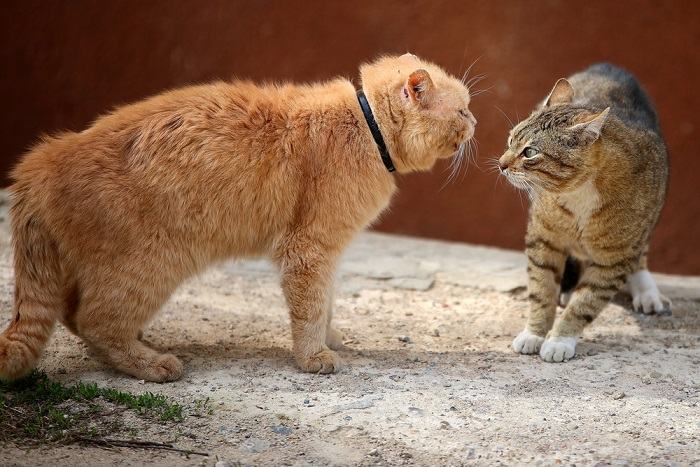
Using pheromone sprays and keeping cats separated for a bit can help with introductions between new cats.
Whenever you introduce a new cat or kitten to your feline family, make sure you do it gradually. Take your time, initially keeping them separate but exchanging items that carry the other’s scent. Over time you can allow them to see each other from a distance, then have supervised contact.
What Are The Signs That Your Jealous Cat Might Be Stressed?
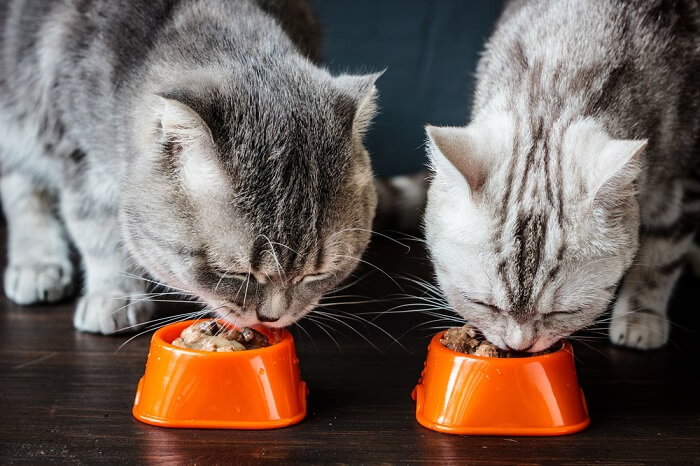
Signs of jealously in cats include the sudden appearance of litter box issues and overgrooming.
If your jealous cat is stressed or anxious, you might notice them overgrooming, leaving their fur with bald patches or even sores and scabs. They might also develop cystitis, causing them to be back and forth to the litter box and frequently straining.
If you look closely you might see some blood in their urine, or they might start peeing in the bath or behind the TV. However, stress doesn’t always show so obviously, even a subtle change in your cat’s behavior could be a sign that they’re feeling anxious. If you’re concerned, a trip to see the vets might be in order.
Conclusion
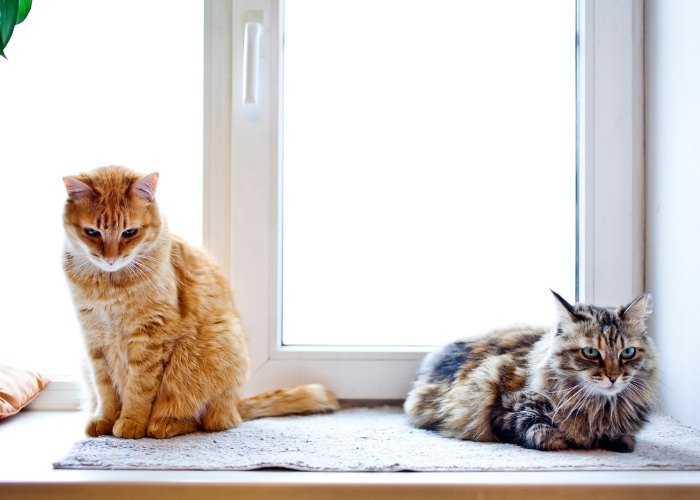
Cat behavior and feline emotions are quite complex. It’s unlikely we’ll ever fully understand the way cats think and feel. However, it’s important to recognize when your cat is uncomfortable with another cat’s presence because this could easily lead to bullying, stress, and associated health problems.
